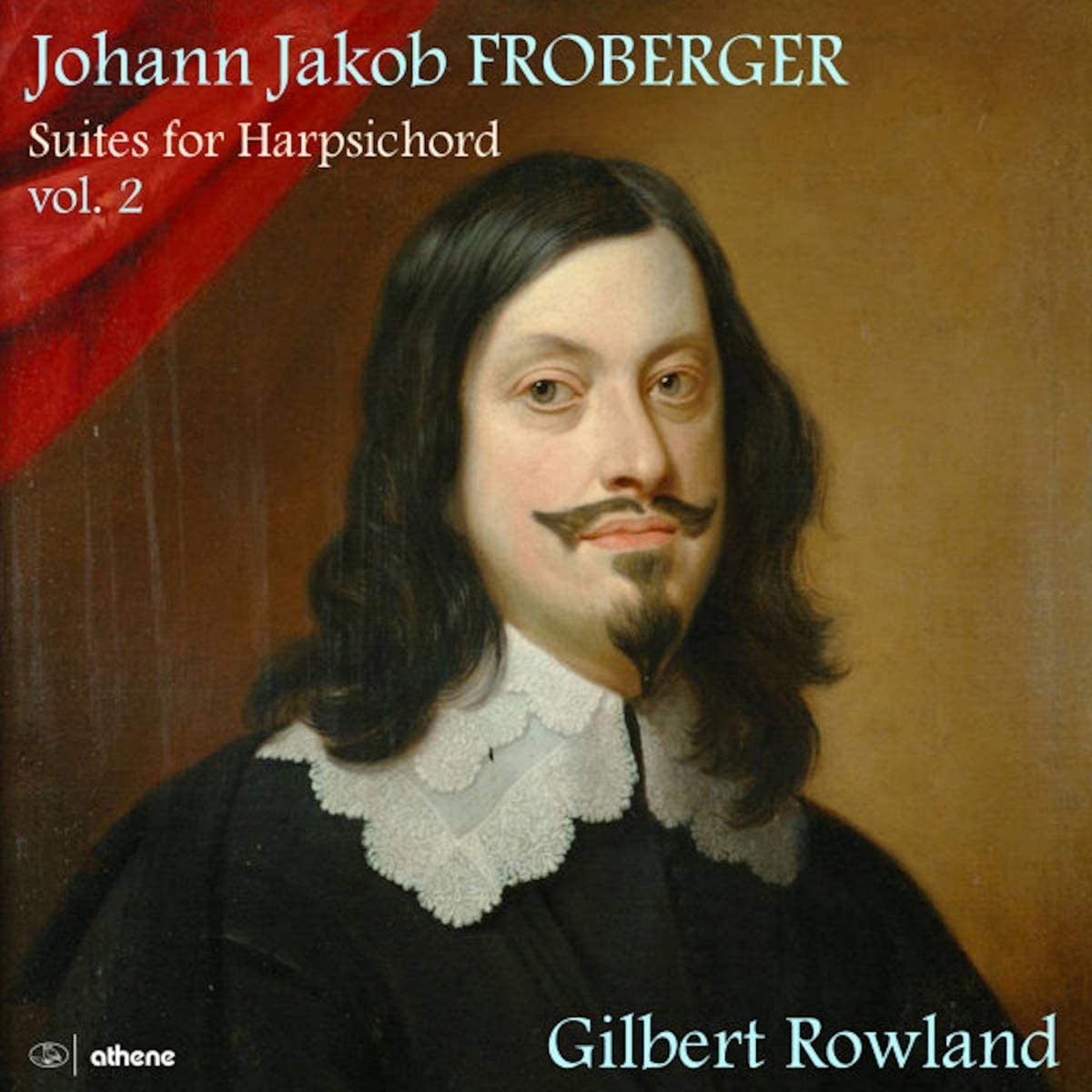Gilbert Rowland
116:56 (2 CDs in a single jewel box)
athene ath 23209
Click HERE to buy this on amazon.co.uk
[These sponsored links help the site remain alive and FREE!]
Gilbert Rowland follows up his first volume of Froberger Suites with a further twelve, again taken from a mixture of sources, and played in no particular order. Sources include the autograph manuscripts of 1649 and 1656 as well as a variety of other manuscripts; they include suites which, though anonymous in the sources, have been ascribed to the composer on stylistic grounds. These are pointed out in the substantial liner notes and their presence allows the listener to explore for themselves the validity of the ascription. They certainly contain some of the more recognisable features of Froberger’s style. The composer’s patron, the dowager Duchess Sibylla of Württemberg, wrote that the true interpretation of Froberger’s notes could only be discovered from the composer himself. Rowland has clearly thought deeply about his interpretations, particularly in the allemandes, which tend to have Froberger’s most profound thoughts and where Rowland is particularly sensitive. He uses inventive ornamentation on repeats in these and other movements, giving them an improvisatory feel – almost amounting to a recomposition at times – but always convincingly so. The courantes are fluent, with lots of French swing, though perhaps a bit stately. Sarabandes, on the other hand, are played quietly and meditatively, while Gigues are generally loud and brash. Rowland uses the same double-manual harpsichord, after a Goermans 1750 instrument, by Andrew Wooderson as he did for Volume 1. While not the most obvious choice of instrument for the music, it does allow a variety of timbres and is cleanly recorded. If I have a criticism, it is that the registration becomes a bit formulaic over the twelve sonatas: it might have been good to have played around with our expectations now and then, being more playful in a Courante or Gigue, perhaps, or making a Sarabande more loud and solemn. Rowland probably feels that he is laying down a definitive version, and there is nothing wrong with that. He is certainly a persuasive advocate for Froberger’s particular blend of styles and influences and well worth listening to.
Noel O’Regan
